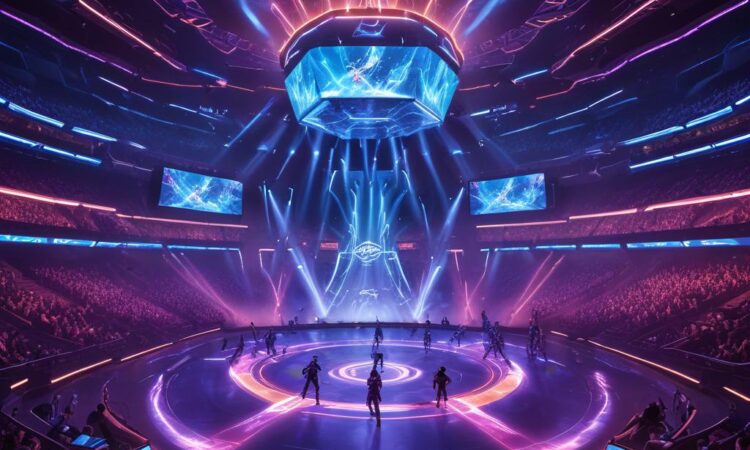Esports and the Metaverse: Investigating the Potential
The metaverse, a nascent digital realm, is poised to revolutionize various industries, and esports is no exception. This immersive virtual environment offers a unique platform for enhancing the esports experience, opening doors to innovative gameplay formats, immersive spectator experiences, and the creation of virtual arenas that transcend the limitations of the physical world.
Virtual Arenas: Redefining the Esports Landscape
Imagine esports tournaments taking place within breathtaking, customizable virtual arenas. The metaverse allows for the creation of boundless, interactive environments that cater to the specific needs of each game and its community. From futuristic stadiums with holographic displays to fantastical realms inspired by beloved game universes, the possibilities are endless.
These virtual arenas can seamlessly integrate with game mechanics, offering players and spectators a truly immersive experience. Imagine watching a Counter-Strike: Global Offensive match unfold within a futuristic cityscape, where players can interact with the environment, cheering on their favorite teams alongside fellow fans in real-time.
Beyond visual spectacle, virtual arenas can enhance gameplay. Imagine a fighting game where players can utilize the environment to their advantage, utilizing interactive elements to gain strategic ground or unleash devastating attacks. This dynamic interaction between the game world and the virtual arena can create truly unique and engaging gameplay experiences.
Immersive Spectator Experiences: Bridging the Gap Between Players and Fans
The metaverse has the potential to transform the way fans experience esports. Imagine watching a League of Legends match from the perspective of a character within the game, feeling the intensity of the action firsthand. Or, imagine a virtual reality experience that allows fans to sit ringside at a virtual boxing match, feeling the roar of the crowd and witnessing the punches land with visceral realism.
With the power of virtual reality and augmented reality, spectators can become active participants in the esports ecosystem. Imagine using your virtual avatar to interact with other fans, participate in mini-games, or even contribute to in-game events. The metaverse can foster a sense of community and engagement that traditional viewing experiences simply cannot match.
New Gameplay Formats: Unleashing the Potential of Immersive Environments
The metaverse opens up a world of possibilities for innovative gameplay formats. Imagine a first-person shooter where players can collaborate to conquer a massive virtual world, utilizing strategies that involve environmental manipulation and dynamic teamwork. Or, imagine a strategy game where players can build and manage virtual economies within a sprawling metaverse city, competing for resources and dominance.
The open-ended nature of the metaverse allows for the creation of truly unique and immersive esports experiences. Imagine a virtual world where players can compete in a variety of disciplines, from traditional esports titles to entirely new gameplay formats that leverage the unique capabilities of the metaverse.
Challenges and Opportunities: Shaping the Future of Esports
While the metaverse presents a compelling vision for the future of esports, it also presents challenges. The development of truly immersive and engaging virtual environments requires significant technological advancement. Furthermore, the issue of accessibility and inclusivity must be addressed to ensure that all players and fans can benefit from the opportunities presented by the metaverse.
However, the potential benefits of the metaverse for esports are undeniable. By embracing this new technology, the esports industry can unlock a world of innovation, creativity, and engagement. This evolution will require collaboration between game developers, platform providers, and the esports community to ensure a successful and inclusive future for esports in the metaverse.
Conclusion
The metaverse represents a transformative force in the world of esports. Its ability to create immersive virtual arenas, foster engaging spectator experiences, and enable innovative gameplay formats presents a compelling future for the industry. While challenges exist, the potential benefits of embracing this technology are undeniable. By fostering collaboration and addressing concerns regarding accessibility and inclusivity, the esports industry can unlock a new era of innovation and engagement within the metaverse.

